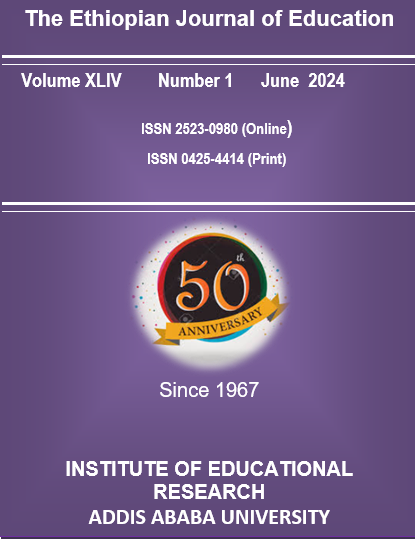A Reflection on the Impact of Covid-19 on Addis Ababa University Education
DOI:
https://doi.org/10.63990/eje.v44i1.10028Keywords:
Covid-19, Ethiopian higher education, remote learning, Addis Ababa University, online classes, connectivityAbstract
The impact of the Covid-19 pandemic on Western higher education institutions has been extensively reported. However, there appears to be a major gap in understanding the effects of the pandemic on university education in some sub-Saharan African countries. The purpose of this qualitative study is to bridge this gap by exploring teachers' and students’ experiences of emergency remote teaching and learning necessitated by COVID-19 at Addis Ababa University (AAU), Ethiopia. Qualitative questionnaires were used to gather data from six postgraduate students studying at different departments three instructors, and three university officials all based at the College of Social Science of AAU. Data was analysed using the qualitative content analysis method, and NVivo software was used to code and manage the analysis of the data. The finding of the study showed that internet connectivity, lack of institutional support and lack of access to appropriate technological devices as some of the major challenges that students and teachers experienced during remote teaching and learning. These challenges highlight a digital divide among students and teachers. Those with limited or no access to a stable internet connection face disadvantages in participating fully in online learning activities. The findings may suggest a need for improved infrastructure, including reliable internet access, to support online education. This could involve collaborations between educational institutions, government agencies, and internet service providers to enhance connectivity. Although this study was on a small scale, the results have a significant implication for the future of online university education in Ethiopia and Sub-Saharan African countries.
Downloads
Downloads
Published
How to Cite
Issue
Section
License
Copyright (c) 2024 Getachew Adugna, Tolera Simie

This work is licensed under a Creative Commons Attribution 4.0 International License.


